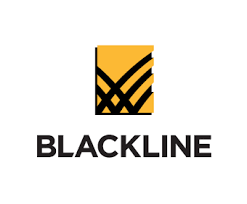The Accounting Industry AI Market: Overview and Growth Outlook

Introduction
The accounting industry AI market is expanding rapidly. Firms are adopting technologies to automate transactions. These technologies detect anomalies and accelerate reporting. According to Mordor Intelligence, the market is valued at USD 7.52 billion in 2025 and is expected to reach USD 50.29 billion by 2030, growing at a compound annual growth rate (CAGR) of 46.2%. This report provides a market overview and growth outlook, highlighting key vendors, funding rounds, and adoption trends.
Market Size and Forecasts
Multiple research firms estimate strong growth in the accounting industry AI market. Mordor Intelligence forecasts an increase from USD 7.52 billion in 2025 to USD 50.29 billion by 2030. Grand View Research offers a longer-term forecast, valuing the market at USD 6.71 billion in 2025 and projecting it will reach USD 96.69 billion by 2033, with a CAGR of 39.6%. While methodologies differ, both sources point to extraordinary expansion driven by automation, regulatory pressure, and demand for real-time data insights.
Investment and Capital Flows
The accounting industry AI market is attracting both venture capital and corporate investment.
- Basis, an AI startup focused on accounting automation, raised USD 34 million. It secured this in a Series A round in December 2024. The round was led by Khosla Ventures. Its platform integrates with QuickBooks and Xero to automate data entry and reconciliation.
- Soraban, a U.S. company offers an “admin copilot” for accounting practices. It secured a Series A led by Altos Ventures in 2024. These tools are designed to reduce non-billable workload by as much as 40–60%.
- RSM US, one of the largest accounting networks, announced plans in 2024. They aim to invest USD 1 billion over three years in AI agents and related technologies. This investment is meant to enhance audit, tax, and advisory services (Wall Street Journal, Sept 2024).
Adoption Trends
Karbon’s State of AI in Accounting Report 2025 shares insightful data. More than half of surveyed accounting professionals said AI tools are saving them time. These tools are already saving them several hours of work per week. These tools are particularly helpful on data entry, reconciliations, and drafting. Larger firms are embedding AI into enterprise resource planning (ERP) systems. Small and mid-sized practices are choosing cloud-based products. They commonly choose vendors such as Intuit, Xero, and Sage.
Generative AI is being deployed for forecasting, scenario planning, and report generation, though adoption remains uneven across regions. North America currently accounts for the largest share of spending. However, Asia-Pacific is expected to be the fastest-growing region through 2030.
Regional Dynamics
- North America remains the dominant region. It accounts for the bulk of global spend due to early adoption and a deep venture ecosystem. Major vendors such as Intuit and Microsoft contribute significantly.
- Europe is experiencing rapid adoption. This is particularly true in the UK and Germany. Firms are responding to regulatory changes and client demand for digital services. EU rules on AI transparency are likely to shape how products are deployed.
- Asia-Pacific is forecast to post the highest CAGR. Digital finance initiatives in India are increasing. Government-backed AI strategies in China contribute significantly. Rapid cloud adoption in Southeast Asia is also boosting demand for accounting AI tools.
- Middle East is emerging as a niche market. Regional firms are adopting AI for compliance and reporting. They focus on heavily regulated sectors such as oil and gas finance.
Competitive Landscape
The competitive landscape includes both established software providers and newer entrants:
- Intuit has embedded generative AI into QuickBooks, branded as Intuit Assist, which automates invoice categorisation and cash-flow forecasting.
- Microsoft is pushing AI features through its Dynamics 365 Finance suite. Copilot helps accountants automate reconciliations. It also generates financial narratives.
- SAP and Oracle are expanding AI features across ERP platforms. They are focusing on compliance and audit trails. There is also an emphasis on integration with multinational accounting standards.
- Xero and Sage are targeting SMEs with AI-enhanced bookkeeping tools.
- Startups such as Botkeeper, Vic.ai, AppZen, and BlackLine continue to differentiate on automation speed, explainability, and ease of deployment.
The ability to provide transparent audit trails and comply with accounting standards is becoming a critical differentiator in vendor products.
Mergers and Acquisitions
The accounting industry AI market is also seeing increased M&A activity. Large professional services firms are acquiring AI startups to accelerate internal capabilities. In 2024, PwC and EY each announced partnerships and acquisitions of small AI toolmakers to improve audit efficiency. Software companies are also consolidating to integrate AI across finance platforms, with Microsoft and Oracle actively scouting smaller firms. This trend is expected to intensify as vendors seek scale and defensible product differentiation.
Challenges and Risks
While growth prospects are strong, the accounting industry AI market faces challenges:
- Regulatory compliance: Firms must ensure AI systems provide clear audit trails, meet data residency laws, and comply with evolving rules on AI transparency.
- Workforce training: Many firms lack sufficient upskilling programmes, raising the risk of errors if staff do not understand how to validate outputs.
- Data security: Given the sensitivity of financial data, security and governance remain key concerns for buyers.
Growth Outlook
The growth outlook for the accounting industry AI market remains robust. By 2030, the market could exceed USD 50 billion globally, with adoption driven by both SMEs and large enterprises. Vendors targeting specialised areas such as tax compliance, fraud detection, and industry-specific accounting are likely to command higher valuations. Partnerships between accounting firms and AI startups are expected to increase, alongside further M&A activity.
Asia-Pacific is forecast to record the fastest CAGR, supported by digitalisation initiatives and regulatory reforms. North America will remain the largest region in absolute spending terms.
Conclusion
The accounting industry AI market is transitioning from experimental deployments to scaled adoption. Investment is flowing into both startups and incumbents. Billions are committed to developing products that increase efficiency. These products also reduce costs and provide strategic insight. Firms that adopt AI responsibly will benefit the most. They need robust compliance and workforce planning. AI will become an integral part of accounting operations worldwide.





